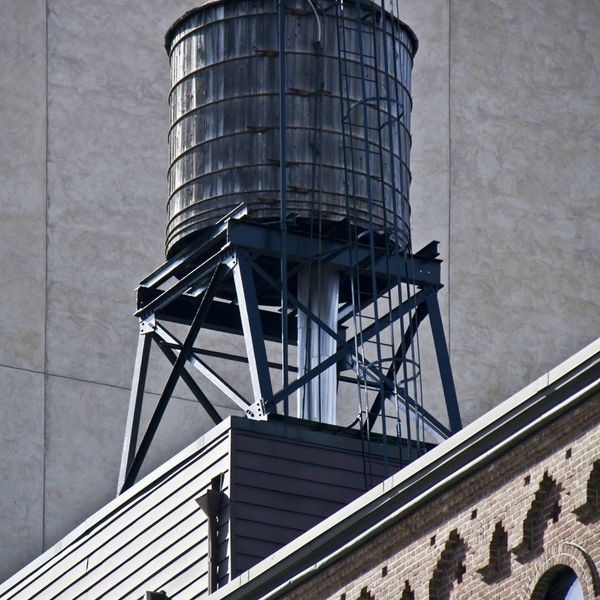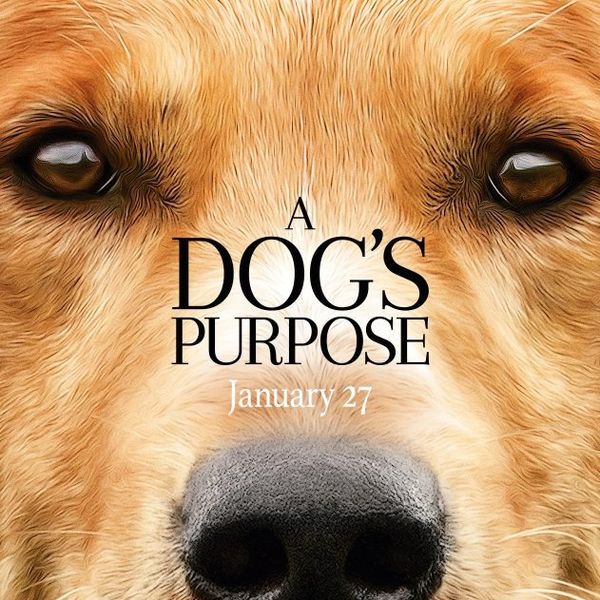Chapter Two: What Happened After Sunrise
Orius’s hand grasped mine tightly. His other buried itself deep into the fur on the nape of Khoda’s neck. I reached for my sword hilt and drew the blade half way out of the sheath.
“Peace.” Khoda commanded. “You will not need it so long as I am here.”
I pushed the hilt down again and the three of us stepped forward. Khoda’s coat, black and grey in the wintry light of the castle, shone silver in the impenetrable darkness. His padded feet made no noise as mine and Orius’s softly pattered and echoed against the stone caverns.
Down, down, down we plunged. I could sense the weight of the castle above us, its energy throbbed tangibly in the air around me. The air chilled more and more as we travelled. We came to the second level, the lowest of the inhabited castle floors. No one lived on the ground level – it was considered too dangerous, too close to the outside.
“This is the last chance to turn back. Are you sure you want to do this?” Khoda questioned seriously with something like light emitting from his great eyes.
He asked Orius first, who nodded timidly and gripped my hand all the tighter. His eyes met mine, and I looked back.
“Let’s go,” I said with a slight smile.
Once more we made our way downwards. Stone spread a few paces out from the last step, then ceased. Of course I knew about dirt – after all we had gardens throughout the royal court. But I had never walked on it. And this dirt was different – in the gardens it was brown and mulchy, but this was a dirty grey. My booted foot strode hesitantly onto its frosted surface. It crackled and sunk into a barely perceptible print. I grinned and turned to Orius.
“It’s all frozen, and hard just like stone. The only difference is the crunch.” I held out my hand to him; he had let it go when I stepped off the pavers.
“Come, we still have a ways to travel,” Khoda reminded us before barking twice into the darkness.
Hooves sounded from the West. As my eyes adjusted to the scant light provided my ventilation shafts, I saw horses, larger than any I had ever seen. Their necks stretched gracefully as their legs strove towards us. Their energy was magnetic. The herd swung to the North, all except for one. It came straight, running faster than the others with less strain. A few moments more and it was before us – huge and white and foreboding.
“This,” Khoda said, “Is Koinb.”
“He’s beautiful,” Orius whispered.
“He is indeed.” Khoda turned and spoke directly to him. “We need to see the old history books.”
Koinb pawed the ground twice and turned his side to us. I helped Orius up then realized there was no way I could get up myself. I looked around worriedly.
“You can step on my back,” Khoda suggested.
I looked at him incredulously. “That doesn’t seem okay to me.”
“You’ll never be able to mount on your own,” he stated.
He was right, but stepping on Khoda’s back went against every inherent response I had. He stood next to Koinb. I sighed and touched my booted sole to his back, hoisting my other leg up and over the horse’s back. Orius hugged himself to me and I patted his little hands on my stomach.
Khoda nodded. “Let’s go.”
We leapt forward into the ebbing darkness. Icy wind stole the air from our lungs and chapped our faces and hands. We stopped once and ate a morsel. I could feel a bruise forming where my sword hit my thigh with each of Koinb’s strides. Orius was tired, but wouldn’t let on to it. He ate slowly and patted the horse’s neck. I felt the tightening skin across my cheekbones and remembered the fabric in my pocket.
“Do you want something to cover your face?” I asked Orius.
He shook his head. “The wind doesn’t get my face since you’re sitting in front of me. Just my hands a bit.”
“A bit longer and we’ll be there. But we should be going again.” Khoda moved beside Koinb so that Orius and I could mount.
Once settled on the horse, I took the white fabric from my pocket and tied it across my nose and cheeks. I looked at Khoda.
“Ready?” I asked.
In response, he shot ahead of us and led the way. He was right; we rode for perhaps an hour longer before coming within sight of the castle wall. Stone stretched out in broken patches toward us. Koinb stopped when we reached it. I slid to the ground and helped Orius slip from the tall back. We walked forward a heard Koinb paw the ground.
There was a raised platform a few yards ahead of us. On it was a stone box, probably three feet high and six or seven feet long. Its lid was a single, thin slab of black onyx. Orius helped me lift it and gently lean it against one of the box’s sides. Inside, stacks of leather-bound books were placed neatly in rows. I pulled the fabric down off my face and let it hang loosely around my neck.
“What is this?” I whispered.
“The old histories of the world before these castles,” Khoda answered. “The one you want is titled ‘The End.’ It’s right on top. Go to the last chapter.”
The book was thick. How it hadn’t rotted centuries ago was beyond me. The pages were still crisp and felt nice under my cold fingers. I turned to the last chapter: Noah’s Ark. I began to read.
The world was in tatters and the sky hadn’t been seen for years because of all the smoke. While the world had been bombing and radiating itself to pieces, some of the old families – families whose roots and histories go back beyond memory – began to rebuild far in the wilderness. For decades they built these city-castles ceaselessly, and took in those refugees who could find them that hadn’t been affected by the radiation. They called the project “Noah’s Ark.” Few found them, and most believed the Russian castles were a myth. The wars raged on. All the while, isolated in the Siberian wilderness, government and education and economic systems grew. Technology was forgotten – it had caused the wars. Soon the families began allowing people to live there who had been affected by the radiation, but kept them on the first floor to prevent any spread of mutations. Eventually there were riots.
“No,” I whispered in despair, scanning ahead on the page.
“Keep reading,” Khoda commanded.
I nodded and took a deep breath, fighting tears.
The first floor was abandoned by the ruling family. They sealed every exit and gave them up to starvation and disease. There was no hope of escape with no windows and walls feet thick. The castles lost contact with each other during this time. One day, there was a fire. No one survived.
I shut the book and screamed, falling to my knees. I came from that ruling family. The grey dirt wasn’t dirt at all; it was ash. The wind shrieked through the ventilation shafts and carried the cries of the abandoned and burned ones. Tears fell cold and fast down my cheeks.
“How could they do this?” I looked at Khoda. I threw the book away from me. “How?!”
When he stepped closer, I saw great, dark tears lingering in his eyes as well. I buried my face in his neck and gripped the fur on his shoulders. Sorrow and anger soaked his grey coat in two great patches, turning it black, but not covering its incandescent sheen. Orius curled into my side and hugged himself to me. A thought tugged its way to the front of my mind. I hated it the moment it presented itself.
“Where were you?” I asked Khoda as I pulled away from him.
Orius could sense my growing anger; he got up and stood a few paces away. I pushed myself into a crouch.
“Where were you?” I repeated each word pointedly, my hand unconsciously moved to my sword hilt.
A small rumble came from the back of Khoda’s throat. I found that I couldn’t look him in the eye as I had before.
“Where –” I began to ask again.
“I heard you the first time.” Khoda interrupted me quickly, baring his teeth.
“Then answer me!” I yelled. “People died horrific , horrific deaths because you weren’t here!
“They died because of the corruption of your family!” He shot back with a heavy growl.
“Why didn’t you do something to stop it?” My voice cracked and my lips trembled. I sank back to my knees from my crouch.
“I cannot control what people do. The freedom to choose nobility and courage also means the freedom to choose cowardice and cruelty. I won’t have people as chess pawns. They must freely choose.” Khoda looked sorrowfully on the stretch of ashes before us. Then he touched his nose to my cheek.
Orius retrieved the book where I had thrown it. It had landed with the binding up, its pages bent and covered in ash. He dusted them off as best he could and set the book back in the box. I rose and helped him replace the lid.





















